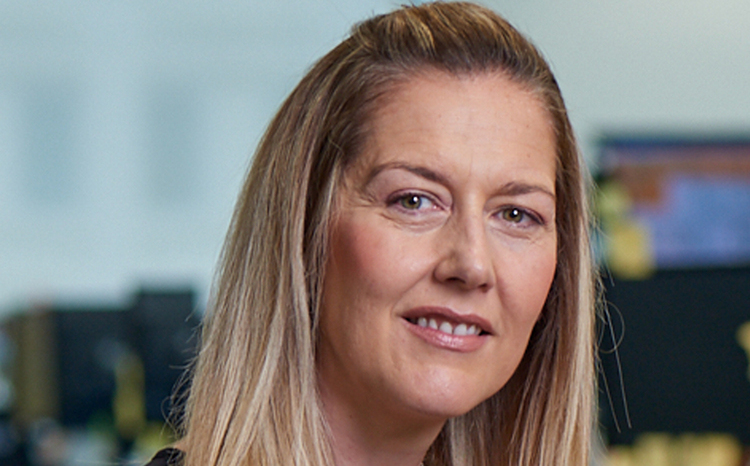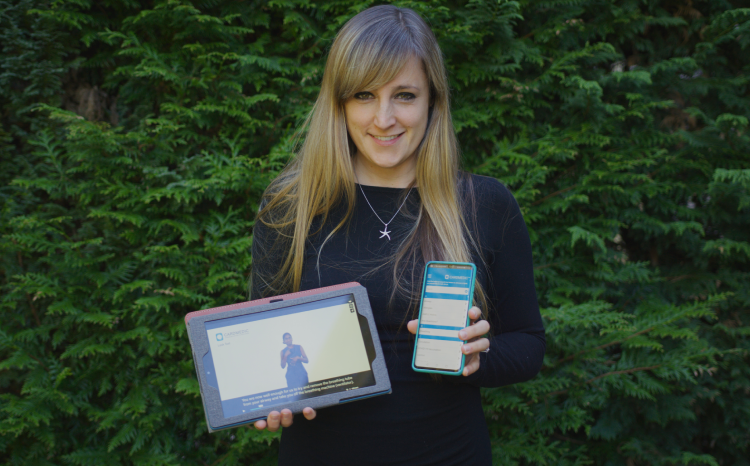Digital Health’s 2024 Review: Top 10 most read opinion pieces
- 27 December 2024

No single theme dominated the most popular opinion pieces of 2024, but several of the best-read columns reflected on the risks of digital.
Over the last 12 months, the long-running Post Office Horizon scandal became a huge story and pathology services in south east London were hit by a major cyber attack. Could this backdrop have encouraged a tendency towards caution?
Read on to discover the topics and writers who made our 2024 top 10 opinion pieces.
10. How riding TikTok’s viral wave can help the NHS reach new audiences
While some NHS trusts are put off by TikTok’s reputation as a “‘fun, creative channel”, it can be a powerful engagement tool, argued Holly Felstead, who landed a place in the top 10 with one of the first opinion pieces of the year in January.
The social media manager at Berkshire Healthcare NHS Foundation Trust explained how TikTok has become the trust’s most engaged social media channel, particularly with “harder to reach” younger members of the community.
The trust has run “hugely successful” and “life-saving” videos on the channel on topics ranging from diabetes to sepsis, she said.
9. I’m beginning to worry about AI
Martin Farrier, consultant paediatrician, director of digital medicine and chief clinical information officer (CCIO) at Wrightington, Wigan and Leigh NHS Foundation Trust, enters the top 10 by revealing his doubts about AI’s impact on the recruitment process for doctors.
Writing in May, he said: “Artificial intelligence has worked out what the perfect application looks like. Most adverts ask for the same stuff.
“Anything which would remake an individual identifiable was removed years ago. Now AI is looking like it can remove the rest of humanity and individuality of the applicants.”
He fears the consequences of selecting doctors on the basis of “dehumanised AI infused responses to standard questions”.
8. Digital Choices facing Wes Streeting
On 12 June, a few weeks before the general election, Jon Hoeksma, chief executive of Digital Health, asked if the next secretary of state for health and social care could “create enough room to really move the dial on digital” and offered a few helpful suggestions.
“Borrowing from the Labour government of 1997, your absolute digital priority for the NHS should be ‘education, education, education’.
“To achieve a step-change in the use of digital and data requires a step-change in the training and education of health professionals.”
Hoeksma also put cancelling costly, ineffective programmes on the ‘to do’ list, and urged the new health secretary to “invest instead in public interest technologies and platforms, which place the user… at the centre of technology”.
7. Restricting doctors use of WhatsApp is pointless
Junior doctor Matt Farrier and his consultant paediatrician father Martin considered the “rollercoaster” of WhatsApp’s reputation in healthcare and the futility of trying to stop the unstoppable.
“At a government level legislative changes are underway that could effectively ban WhatsApp.
“The concern is once again about security, but this time it’s because the messages are too secure. They were happy enough for such apps to exist when people considered them to be safe but weren’t.
“All the time the government was able to freely access messages. Now that they are safe from prying eyes, they don’t want us to use them,” they wrote.
6. The Post Office scandal has a hard lesson for the NHS
The disastrous consequences of the flawed Fujitsu Horizon system should make digital leaders in the NHS vow to do better, argued Farrier. No good comes from believing in the “infallible nature of data”, he warned.
“Perhaps the British love of the underdog is why the ITV drama Mr Bates vs The Post Office caught everyone’s attention.
“More likely, it’s because we see ourselves in the vulnerable sub-postmasters as we face the overwhelming power of corporations and their data.
“We too [in healthcare] have overpowering systems. And this is not just an issue for digital, it is about the organisational cultures in which digital systems operate.”
5. What makes the NHS App successful?
In a rare example of an opinion piece “reviewing what NHS England did right” Mohammad Al Ubaydli unpicked the reasons for the NHS App’s success.
“Very few governments can pull off a good superapp… NHS App’s success is a delicate act of statecraft.
“The originators deliberately and correctly refused to build features. Instead, they bought features and built governance. Almost every feature in the app is delivered by a private sector company; there are many, and the NHS is adding more.”
For the founder and chief executive of Patients Knows Best, the NHS App on all our smart phones, is perfectly placed to tackle the great health challenges of our time.
“Your phone monitors and changes your behaviour all day. Your phone will become the most important health care tool,” he wrote.
4. Colleagues and friends pay tribute to ‘brilliant’ CIO Glenn Winteringham
Hoeksma presented tributes to the Glenn Winteringham, who died in May. The long-serving chief information officer (CIO) at the Royal Free Hospital was known for his inspirational leadership, unstinting kindness, and ability to deliver digital transformation.
“He was a lovely, generous and kind-hearted man and a brilliant colleague,” said Peter Landstrom, chief executive of the Royal Free.
Landstrom added: “He was instrumental in the delivery of landmark projects, including the introduction of the electronic patient record and Chase Farm Hospital being awarded Healthcare Information and Management Systems Society level 7.”
Markus Bolton, cofounder at System C, said: “Glenn was experienced, fast thinking, strategic, pragmatic and great company. He was a model CIO and a great loss to the NHS.”
3. Rewired 2024: Doctors’ roles will be ‘radially redefined’ by AI
Ahead of Rewired 2024 at the Birmingham NEC in March, Haris Shuaib, head of clinical scientific computing at Guy’s and St Thomas’ NHS Foundation Trust, Ruth Holland, deputy chief information officer at Imperial College Healthcare NHS Trust, and Hassan Chaudhury, commercial director at DATA-CAN, gave their takes on the key developments in AI and data.
One issue they considered, was whether the increasing presence of AI posed a threat to human doctors.
“Yes it does pose a risk in the medium term,” said Shauib. “Doctors’ roles and responsibilities will be radically redefined.”
Holland was optimistic that the “appointment of AI officers will help”.
But for Chaudhury, the discussion about AI replacing doctors was a “red herring”.
He added: “The context is that there is a huge shortfall in the global medical workforce. This is an urgent matter, with international demand for staff outstripping qualified supply.”
2. Virtual wards: We are in danger of being eclipsed by our European neighbours
The NHS needs to act to avoid falling behind other European countries “more proactive and innovative approaches” on the use of remote monitoring for wider health care, warned Tara Donnelly in April.
“In Denmark, they are providing remote monitoring to all those with severe COPD this year, so convinced is the Danish government of the benefits.
“In France, they are extending remote monitoring to any patient where their doctor believes they would benefit,” wrote the founder of Digital Care and former chief digital officer at NHSX/NHS England.
“We can be rightly proud that the NHS in England has led the way on the expansion of virtual wards for people with an acute need… With vision, there is no reason why this same technology can’t be used to keep those with long term conditions well and out of hospital, just as our European neighbours are doing.”
1. Joe McDonald: The moment I realised, I’m history
The opinion piece which garnered the most views in 2024 was also one of the most personal: Joe McDonald’s frank account of his disappointment and anger at not being interviewed for the national CCIO job. It certainly struck a chord with sympathetic readers.
In a truly memorable piece written in June, the founder of the Great North Care Record revealed how he got the news, by email, while sailing out of Mesolongi in the Greek islands.
“Disappointed, I look for the signature, while keeping one eye on the channel markers as we approach the open sea. There is no signature, it’s sent from a team inbox. No one to talk to. No one brave enough to tell me I’m too old or too mouthy or the wrong kind of person.
“And there we have the culture of NHS IT: fear is keeping the ‘wrong kind of people’ out.”
Dr Alec Price-Forbes, consultant rheumatologist and former CCIO for Coventry and Warwickshire’s sustainability and transformation partnership, Better Health, Better Care, Better Value, was later appointed the role of national CCIO in October 2024.





